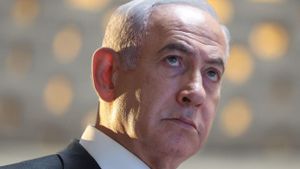President-elect Donald Trump has made waves by nominating Russell Vought, known for his role as the chief architect of the controversial Project 2025, as the director of the Office of Management and Budget (OMB) during his impending second term. This appointment marks Vought's return to the White House budget office, where he previously served as the deputy director and then the acting director during Trump’s first administration.
Vought's nomination, announced on November 25, 2024, was accompanied by Trump’s declaration on social media, praising Vought for his ability to 'dismantle the Deep State' and for his commitment to fiscal responsibility. According to Trump, Vought will be instrumental in bringing back fiscal sanity and empowering the American populace. "Russ knows exactly how to dismantle the Deep State and end Weaponized Government, and he will help us return Self Governance to the People," Trump stated.
Vought’s previous responsibilities at OMB included orchestrations around the presidential budget requests and emergency spending proposals. The OMB’s role is pivotal, overseeing the implementation of policies across the executive branch, which could have sweeping ramifications on the nation’s funding priorities and allocations. Historically, former presidents submit their budget proposals to Congress each February, though actual implementation often diverges from these suggestions, especially under bipartisan control.
This time around, Trump seems eager to reshape the process. He aims to channel significant influence through Vought, noted for promoting aggressive cuts to federal regulations and government size during his first tenure. Trump’s administration previously faced legal challenges when it tried to exert control over federal spending and programs, as seen during the withholding of aid to Ukraine, which led to impeachment proceedings.
The backdrop to this nomination is Trump’s ambition to maneuver through what he calls the 'Deep State' and consolidate power within the executive branch, which has raised eyebrows among critics. Trump’s plans involve Musk and Vivek Ramaswamy leading efforts to cut government spending, promoting the Department of Government Efficiency; yet this department remains unofficial with no established budget from Congress.
With Vought stepping back, he brings along the ethos of Project 2025—a framework devised primarily by the Heritage Foundation featuring extensive conservative policy proposals focused on limiting federal reach and transforming how government functions. The project aims to trim governmental bodies and reallocate funds, particularly opposing the allocation for abortion services and the abortion pill mifepristone.
Vought’s stature within the conservative movement solidified during his tenure at the Heritage Foundation and associated organizations. He publicly called for greater presidential control of government agencies, stating, "We have to solve the woke and weaponized bureaucracy," emphasizing the need for Trump to reclaim agency autonomy.
The nomination has not gone unnoticed by the Democrats, who launched campaigns to address perceived threats posed by Project 2025 to the foundational institutions of American governance. This has heightened the urgency within Congress as Vought faces Senate confirmation, where Democrats typically wrestle with GOP nominees along ideological divides.
Vought’s ascension to the OMB's leadership role seems to promise considerable upheaval within federal expenditure practices and lines of accountability. His prior assertions—that independent agencies should be dismantled or heavily influenced by the presidency—reflect his intent to pursue deep-seated changes within how the federal government operates.
Trump’s second term is anticipated to amplify regulatory rollbacks and systemic government reductions, primarily driven under Vought’s guidance. The veteran of Trump’s administration is expected to be the key driver behind executing the ambitious directives set out by Project 2025.
The road to confirmation is where the political maneuvering will likely intensify. With unfurling debates around the separation of powers and executive overreach, Vought’s confirmation will not just be about his qualifications but will epitomize the broader ideological battle existing within American politics today.
Only time will tell how effective Vought will be at the helm of the OMB. Will he uphold the ambitious austerity measures he has championed, or will the realities of governance challenge these ideals?



